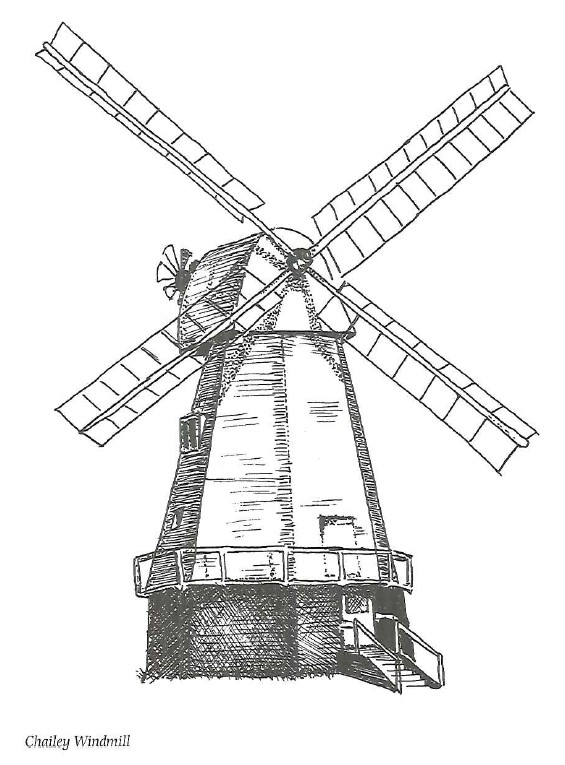The rules of Hartfield Workhouse in 1821 were enough to inspire a morbid fear of falling on hard times: ‘It is required that every poor person who is supported in this House, either man, woman or child, shall attend Divine Service every Sunday morning and afternoon and on all Prayer Days throughout the year, by order of the Governor or Governess. All those that neglect Morning Service shall have no Dinner. Those that neglect the Afternoon Service shall have no Supper.’
It was also the custom when people first applied for poor relief of sending them out on Ashdown Forest with a wheelbarrow to bring back a load of stones. Presumably this back-breaking task was designed to make people think twice about asking for aid.
This is forest country, and the history of the village is closely linked with earning a living from the acres of heath and woodland which stretch away to the south. Hartfield men managed some notable ‘firsts’ on Ashdown, one Colonel Young introducing sheep to the forest and a shepherd to look after them in the mid-19th century, and Mr Bernard Hale brought Shetland cattle to the area. Mr Hale and his labourer John Miles were involved in a longdrawn-out trial in 1876 which was to decide the future of the area. The seventh Earl De La Warr, Lord of the Manor of Duddleswell and owner of the soil, brought a test case against these two ‘Commoners’ ordering them to refrain from cutting litter on any part of Ashdown Forest. The Earl lost his case on appeal and a Board of Conservators was born, chosen by the Commoners themselves, to protect traditional rights and privileges. Byelaws were introduced which made it illegal, among other things, to use blasphemous or obscene language on any part of the forest, or to light a fire without authority.
The Board today maintains the forest as laid down in the Ashdown Forest Act, 1974, as a ‘quiet and natural area of outstanding beauty’.
Hartfield is a place where grown-ups can indulge in a little nostalgia. This is the territory for the adventures of Winniethe-Pooh for their author, A.A. Milne, lived in the village. Posingford Wood and Five Hundred Acre Wood are where many of the escapades took place and the bridge where Pooh and Christopher Robin played ‘Poohsticks’ has become a place of pilgrimage. The parish council has in recent times had to take steps to repair the footpath leading to the bridge, but it has received some financial help with the work from Methuen, publishers of the Pooh stories.
Three centuries ago Nicholas ‘Beggarman’ Smith undertook some unusual market research. This wealthy man disguised himself as a beggar and wandered from village to village to find out the nature of Sussex folk. He met with little kindness until he came to Hartfield where he got a warm welcome, put down roots at Crotchford Manor and left £10 to be shared in perpetuity by 40 poor people of the village in his will of October 1634. Remarkably, ‘Beggarman’ is still honoured every Good Friday morning when there is a short service by his grave.
Inside the graceful 13th century church is a tablet in Latin, presumably written by himself, to Richard Randes, a rector of Hartfield who died in 1640, which translates in part as: ‘He lived obscure and always shunned the vulgar throng, that is wont to reek of the odours of vine crowned Bacchus. But alas! he lived badly and now imprisoned in the darkness of the tomb, he teacheth thee what he late began to learn himself.’
